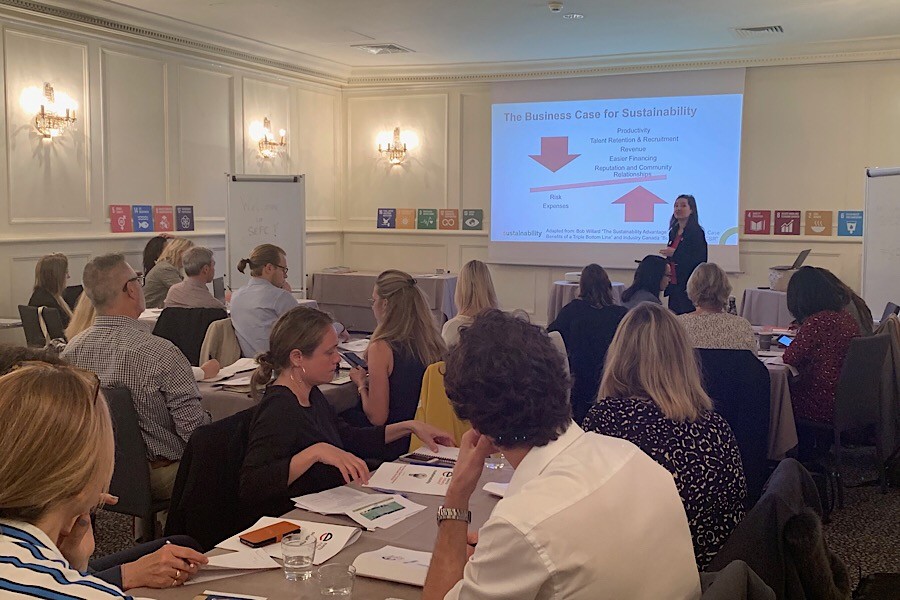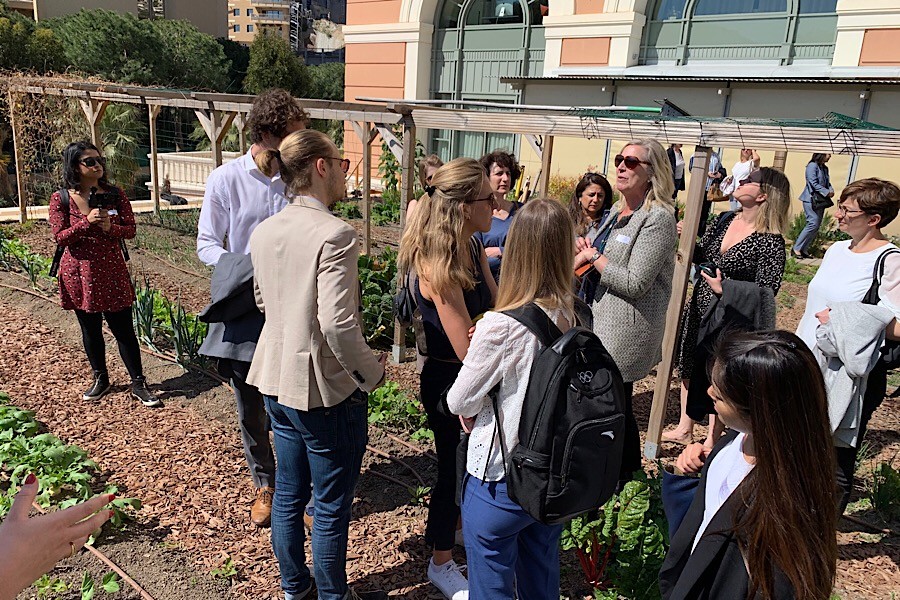Monaco has hosted the first ever training course in Europe aimed at teaching event planners how to make events more environmentally friendly. Industry professionals came from across the globe to learn how sustainable practices can ultimately be good for business.

Under the High Patronage of HSH Prince Albert, the Sustainable Events Professional Certificate training showcased some of the Principality’s best sustainable practices, including Monaco Tourism’s motto ‘Green is the New Glam’, and how sustainability can be luxurious. The weekend event was hosted by Claudia van’t Hullenaar, founder of Sustained Impact, and Miek Egberts of InspireME Monte-Carlo.
The diverse group of participants included people from local event organisations, six members of the International Olympic Committee, Switzerland’s first sustainable events company, and an event planning vlogger from Hot Hospitality Exchange. Two participants came from as far away as San Francisco. The importance of measuring, monitoring, and improving sustainability at events was discussed, along with a full range of sustainability practices, from limiting waste and carbon footprint to being inclusive and making events accessible to people with special needs. It was a weekend of collaboration, creativity, and commitment to sustainability.
The group spent mornings at the Fairmont Monte Carlo, learning with Mariela Mcllwraith from the Events Industry Council. The first of its kind in Europe, the two day training on sustainability for event planners went beyond a traditional conference room training. Participants were treated to morning mindfulness sessions, toured the sustainability practices at The Columbus Hotel, explored the urban garden Terre de Monaco at the Monte Carlo Bay Hotel, and learned how sustainability goes beyond just being “green”.

They heard how actions like sharing shipping space on trucks with other vendors, choosing only enough food for guests to eliminate waste, and selecting green methods of transportation for guests like walking or public transit, can ultimately support a business’ bottom line. The course provided insights on how to communicate the business value of sustainable events and learn how to be more environmentally and socially responsible by reducing waste, energy and water usage, and improving accessibility.
International sustainable event standards were outlined as well as measurement reporting methodologies. At the end of the training, participants received a Sustainable Event Professional Certificate (SEPC).